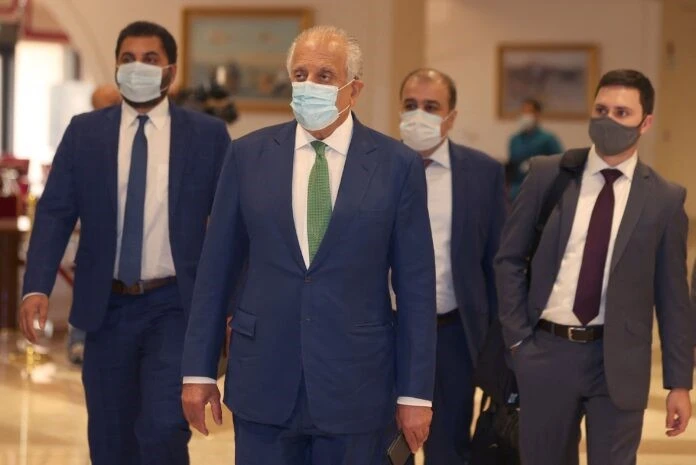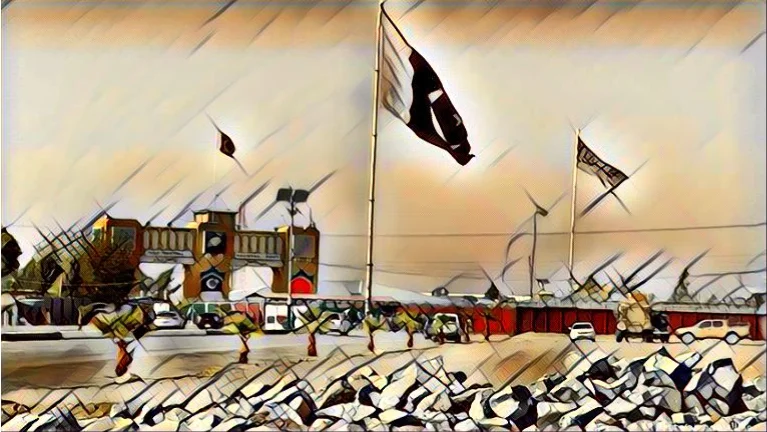The chaotic withdrawal of US forces and Zalmay Khalilzad’s sudden resignation are indications of United State’s strategic failure in Afghanistan. President Donald Trump appointed Khalilzad as the Special Representative to the Afghan Peace Process based on his exceptional diplomatic career. On the other hand, Afghan activists urged the Trump administration to reconsider his appointment.
Khalilzad’s History in Afghanistan
To put the skepticism in perspective, Khalilzad’s role in the 2001 Bonn conference must be taken into account. His “shuttle diplomacy” convinced the Northern Alliance leaders to step down from their controversial positions. For instance, he made the former president of Afghanistan, Burhanuddin Rabbani to step down, and then motivated all the other Afghan political factions to come on board.
In the post-2001 scenario, Khalilzad allegedly used ethno-politics in Afghanistan. He even tried to vest the powers of governance in the hands of the President through the constitutional Loya Jirga in 2004. This was to overcome the warlords; some factions perceived it as a move to give more power to the Pashtuns. Notably, Hamid Karzai, an ethnic Pashtun was the head of interim government at the time. These factions argued that Khalilzad created a political system which favored the Pashtuns and allowed them to rule over the non-pashtuns.
However, this was not the case, because there were many other politicians who were on top position in the government. For instance, Mohammad Qasim Fahim, who was vice president of the Karzai government from June 2002 until December 2004, and from November 2009, until his death. In addition, Karim Khalili was selected as a candidate for second vice president of Afghanistan in 2002, by Hamid Karzai.
Interestingly, the Pashtuns also blamed him for empowering the Northern Alliance during the Mujahedeen era, and in post 2001 scenario. This image of Khalilzad denotes his controversial role in Afghanistan matters.
US-Taliban Peace Talks
Khalilzad continued to receive criticism as US special representative for Afghan peace process. He not only excluded the elected US-backed Afghan government from US-Taliban negotiations, but also gave larger concessions to the Taliban. These included the release of 5,000 Taliban prisoners; a move strongly opposed by former president, Ashraf Ghani. In spite of this, he managed to get the Taliban to agree not to attack US and allies.
Moreover, he failed to play a constructive role as he couldn’t convince the Taliban for a short or long term ceasefire agreement. Instead, the release of Taliban prisoners resulted in exacerbation of the conflict. Consequently, Afghan officials accused Khalilzad of demoralizing the Afghan government and the ANDSF. On the other hand, his visits to Kabul remained fruitless; Khalilzad kept pushing for the formation of an interim government, an idea which was rejected by the Afghan leadership.
Shortcomings in the Afghan Peace Process
Additionally, the October 2018 US-Taliban negotiations ended in February 2020 with a US-Taliban agreement. The agreement reflected Trump administration’s priorities; it received criticism because it sidelined the elected government. The critics included the Afghan people and the government alongside several other states. Pakistan was amongst those countries that pressured the US to include the Afghan government in the negotiations.
Moreover, in his first interview after resignation he was questioned about the decision to exclude the Afghan government. His response:
The Talibs are a reality of Afghanistan. We did not defeat them. In fact, they were making progress on the battlefield even as we were negotiating with them. And the reason we negotiated with them was because militarily things were not going as well as we would have liked. We were losing ground each year.
Moreover, the exclusion of the Afghan government kept him unaware of major developments and back-channel US-Taliban discussions. One major perception that caught the US unawares was their “understanding” that the Taliban have unofficially agreed to a reduction in violence.The Taliban also agreed not to attack cities, but they did so. A major shortcoming of the agreement was the lack of definition of or agreement on measures to evaluate implementation.
The Blame Game
In fact, the ongoing critical situation in Afghanistan, and the chaotic evacuation process, which has led to the killing of at least 92 people due to a blast happened outside the Kabul airport, was the result of failed US policy that has come into action in terms of the US-Taliban agreement, led by Zalmay Khalilzad. However, he blames former president Ghani’s hasty withdrawal as the major reason of what transpired in Afghanistan. On the other hand, the current US president, Mr Biden, in his speech on 01 September, 2021, also accused the Trump administration for bargaining a withdrawal agreement that had shortcomings.
Importantly, in the US Congress, Mr Khalilzad has been absent from Afghanistan briefings. Notably, Khalilzad’s resignation comes after his exclusion from the recent US-Taliban delegation meeting in Doha Qatar. However, in response to his resignation, in an interview with AFP news agency, Khalilzad stated, “the political arrangement between the Afghan government and the Taliban did not go forward as envisaged”. His recent interview included a statement in which he blamed the former government for their lapse in judgement – saying “the biggest difficulty was that President Ghani and a few other Afghan leaders did not believe that we were serious about withdrawal for a long time“
The bottom line is that whether Khalilzad goes or stays, the Afghans continue to suffer. The Taliban gained De Facto recognition when they became party to an international agreement – A step taken by the US with full knowledge. The current lag in recognizing the Taliban in power shows how the US continues to misunderstand the situation in Afghanistan.



